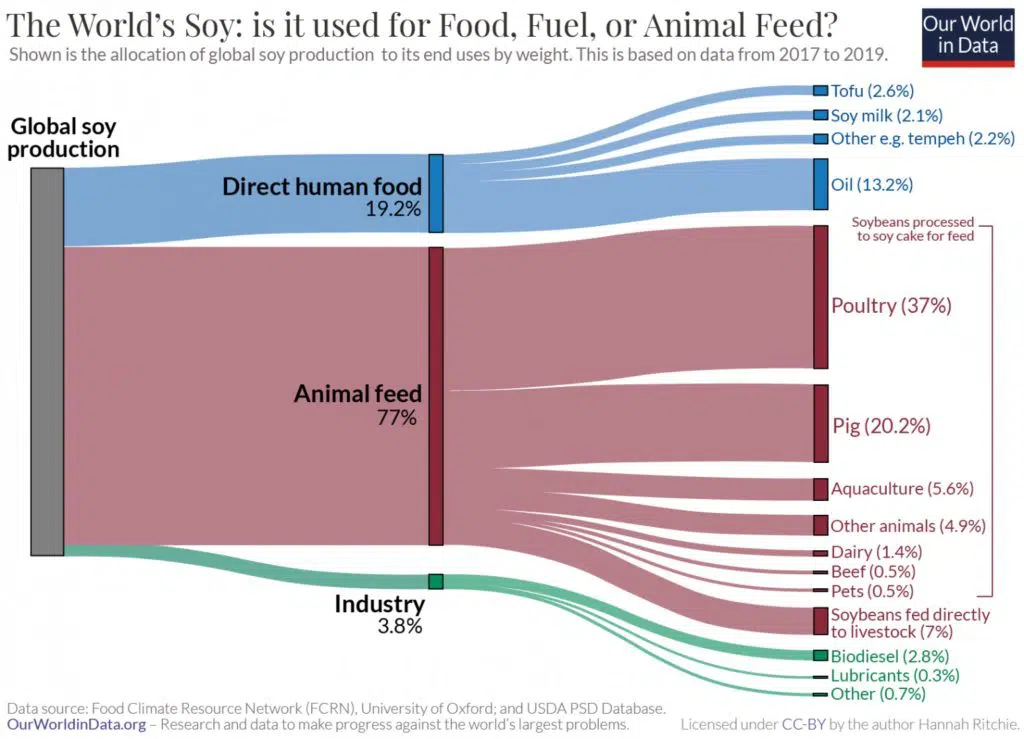“The argument that soybean products is unsustainable omits a critical statistic that more than 77% of global soy produced is used to feed livestock.” [earth.org]
.
How sustainable is the production of soy bean? Futures Forum: Are modern plant-based diets and foods actually sustainable?
It’s very much associated with the destruction of rain forests and other habitats in the global south: Soy | WWF and Futures Forum: Saving the rainforests……. indigenous communities’ and palm oil corporations’ commitment to “zero-deforestation”
It’s been proposed that production could come to the UK:
Climate change requires a rethink of crop production toward varieties and crops that are better adapted to heat and drought. Soybean is an arable crop that thrives in warm conditions and provides itself with nitrogen, an important plant nutrient that farmers would otherwise have to provide through fertilizer. A study published by the Leibniz Center for Agricultural Landscape Research (ZALF) in the journal Global Change Biology shows that in the long term, more and more arable land in Europe will become suitable for soy production. According to the authors of the study, this would enable the EU to do without a large proportion of soybean imports from Brazil and the U.S. in the future. An opportunity provided by climate change: Soy production to increase in Europe in the future
There’s a lot of misunderstanding over soy production:
For years we’ve seen the perpetuation of a largely false stereotype – that increased soy production reflects growth in popularity for vegan and vegetarian diets. This erroneous myth has helped spur the widespread belief that soy-based foods (and the vegans and vegetarians who eat them) are as much responsible for environmental destruction as animal-based products, like meat and dairy. And although soy production does come with environmental costs, most of it’s not grown for the reasons we think: the real driver behind excessive soybean cultivation is not ardent vegans and vegetarians, but, counterintuitively, the meat, dairy and egg industries. This is because the vast majority of the world’s soybeans – between 80-90%, is fed to farmed animals. Of the soy remaining, just 6% is turned into soy products for human consumption. Is Soy Bad for the Environment?
The argument that soybean products is unsustainable omits a critical statistic that more than 77% of global soy produced is used to feed livestock. A further 16% is used for biofuels, vegetable oils or other industrial purposes. Soy used directly in products for human consumption such as tofu, tempeh and milk only makes up 7% of global soy usage.

Soybean Products and Its Environmental Impact | Earth.Org
So, how much UK-produced soy would go to animal feed, and how much to plant-based foods for human consumption?